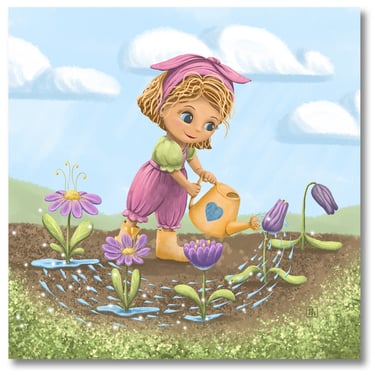Our soul is like a garden where we are gardeners. The best gradients for building our own or others’ mental health are unconditional love, understanding, mindfulness, non-judgment, respect, sympathy, curiosity, forgiveness, encouragement, and patience. The growth is guaranteed.✨
Here you can find links to pages where a lot of useful information about various topics in children's mental health and well-being is available.
If you need help, ask for it! There are many services and resources for us. We do not have to fight alone, my friends.❤️



Useful Websites:
Free Social Work Tools and Resources
Books, videos, articles, and many more types of resources to help you in the mental health field for direct work with children and adults by social workers.

Institute Of Child Pcychology's mission is to EMPOWER caregivers, parents, teachers, therapists, social workers, and psychologists
ICP was founded to educate parents and professionals on issues about children’s mental health and to promote the psychological and emotional well-being of children and adolescents.

The Power of LANGUAGE NUTRITION for Children’s Brain Development, Health, and Future Academic Achievement
Early exposure to language-rich interactions between adults and children forms the basis of Language Nutrition, a term created to describe the use of language sufficiently rich in engagement, quality, quantity, and context that nourishes the child neurologically, socially, and linguistically.

National Society for the Prevention of Cruelty to Children: ATTACHMENT THEORY
Attachment theory highlights the importance of a child’s emotional bond with their primary caregivers. Disruption or loss of this bond can affect a child emotionally and psychologically into adulthood and has an impact on their future relationships.

The Brain Before Birth: Using fMRI to Explore the Secrets of Fetal Neurodevelopment
Human brain development starts soon after conception and continues into early adulthood. The fetal brain begins to develop during the third week of gestation. Neural progenitor cells begin to divide and differentiate into neurons and glia, the two cell types that form the basis of the nervous system.

Building a SECURE ATTACHMENT Bond With Your Baby
Attachment or the attachment bond is the unique emotional relationship between your baby and you, their primary caretaker. It is a key factor in the way your infant’s brain organizes itself and how your child develops socially, emotionally, intellectually, and physically.

Stages Of PRENATAL DEVELOPMENT
Brain development does not end at birth. A considerable amount of brain development takes place postnatally, including growing in size and volume while changing in structure. The brain quadruples in size between birth and preschool. As children learn and have new experiences, some networks in the brain are strengthened while other connections are pruned.

EARLY Intervention
Early help, also known as early intervention, is the support given to a family when a problem first emerges. It can be provided at any stage in a child or young person’s life.

GUIDANCE of Promoting and Supporting Mental Health and Well-being in Schools and Colleges
Taking a coordinated and evidence-informed approach to mental health and wellbeing in schools and colleges improves pupil and student emotional health and wellbeing.

Early Childhood Mental Health
As early experiences shape the architecture of the developing brain, they also lay the foundations of sound mental health. Disruptions to this developmental process can impair a child’s capacities for learning and relating to others — with lifelong implications. By improving children’s environments of relationships and experiences early in life, society can address many costly problems, including incarceration, homelessness, and the failure to complete high school.

Recognizing the struggle: Children’s MENTAL HEALTH
Recognizing the signs that a child may be struggling with their mental health can be really hard. They’ve got advice to help you support children who may be experiencing depression, anxiety, suicidal feelings, or self-harm.

YoungMinds
Whether you want to understand more about how you’re feeling and find ways to feel better, or you want to support someone who’s struggling, they can help.

Place2be
They provide mental health support in schools through one-to-one and group counseling using tried and tested methods backed by research. They also offer expert training and professional qualifications.

Child And Adolescent Mental Health Service
CAMHS helps children and young people up to 18 who struggle to cope with everyday life because of complicated feelings, behavior, or relationships.

